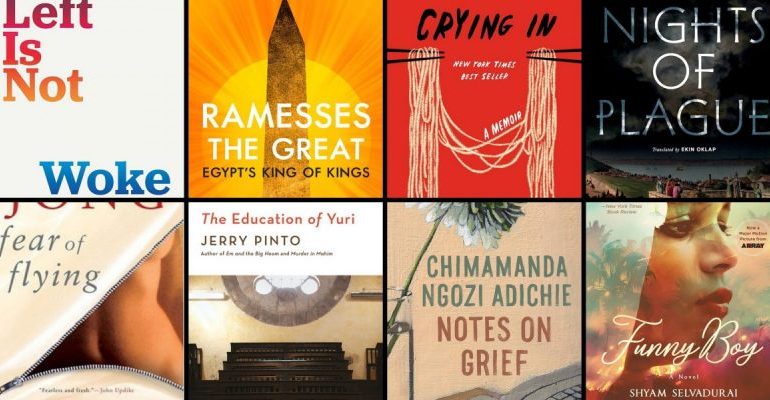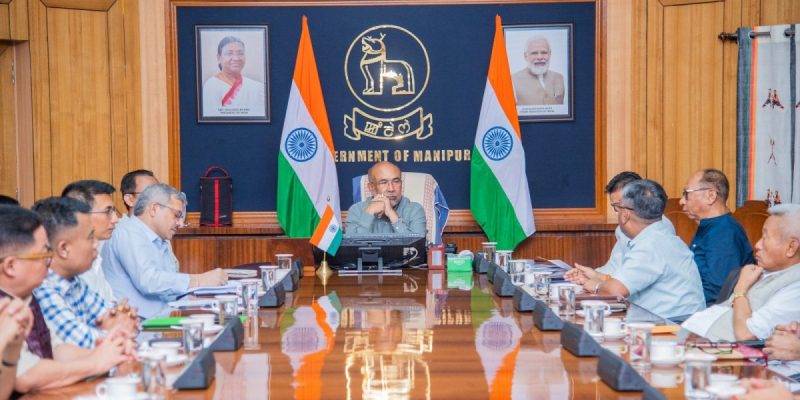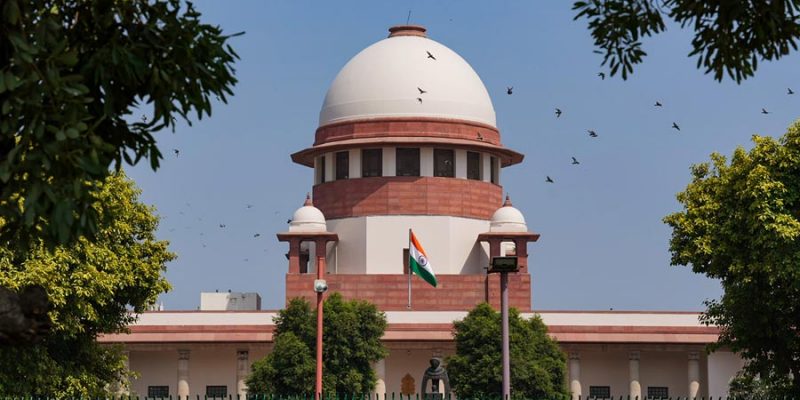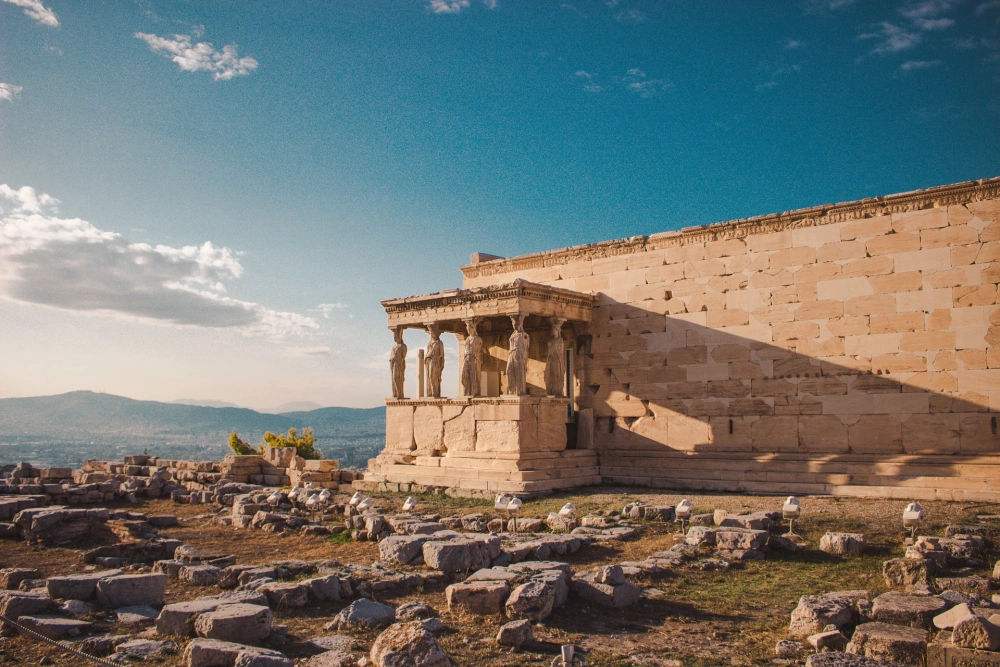The Wire Recommends: Our Favourite Books From the Year Gone By

1. Aathira Perinchery: Notes on Grief by Chimamanda Ngozi Adichie
I lost my grandad, who I was very close to, this year. Through Notes on Grief, I could feel Adichie’s pain of losing her dad and her words, her memories, her thoughts — unstructured, sudden, visceral — all felt suddenly so familiar, relatable.
2. Taniya Roy: Funny Boy by Shyam Selvadurai
This book taught me a very simple thing: that it’s okay to be extremely emotional. When you’re a child and no adult in the family wants to know what you’re going through, you deal with difficult emotions on your own. In the end, you’ll always manage to figure out a way. Be true to yourself, be honest with yourself, and help others in need.
3. Sravasti Dasgupta: Crying in H Mart by Michelle Zauner
Korean American Michelle Zauner, best known as the singer, guitarist and songwriter of the indie-pop band Japanese Breakfast, writes about losing her mother to cancer, battling grief and coming to terms with the absence of a parent she resented for most of her life.
Zauner’s autobiographical tale is sublime and casts the narrative in the immigrant experience of many Americans who would rather invisibilise their cultural difference than be seen as the “other”. It also tells the tale of many women who have difficult relationships with their mothers and only grow to appreciate them when they’re older, and often, as in Zauner’s case, when they are about to lose them forever.
The book ultimately sees Zauner come into herself, accept her individuality, heritage, culture and identity as she loses the person who made her “different”.
The book was recommended to me by a friend and I could not be more grateful as it brought a paradigm shift in how I subsequently heard Zauner’s music – despite being a longtime fan of Japanese Breakfast.
4. Devirupa Mitra: A journey to Ancient Egypt
There has been always an embarrassment of riches when it comes to finding good overview books with rigorous research but approachable writing on ancient history in the western world. But when one starts to look beyond towards Ancient Egypt – it requires a lot of digging, perhaps because their writer-historians are not as well known. Consequently, the discoveries I made and enjoyed this year were delightful surprises.
A compelling starting point for venturing into Ancient Egypt is biography of Ramesses the Great by Toby Wilkinson released earlier this year. It draws a nuanced portrait of not only the ancient autocrat, but the machinery behind the throne. Following this immersive and enjoyable read, it’s unsurprising to be drawn to the same author’s 2013 work, The Rise and Fall of Ancient Egypt.
It is not that easy to get one’s brain around the antiquity of the Egyptian civilisation, with its pyramids standing for over two and a half millennia by the time Egypt experienced its last nominal independent rule.
While the fall of Egypt under its last ruler Cleopatra is still well known, its pre-pharaonic history is equally fascinating in answering questions about the conditions which gave rise to such an unique and long-lasting civilisation along the narrow strip of land along the banks of the Nile. John Romer penned a trilogy about Egypt’s history, but it is the first volume, tracing from prehistory to the construction of the first pyramids, that stands out for its meticulous weaving of archaeological research and story-telling.
5. Jahnavi Sen: The Education of Yuri by Jerry Pinto
I may have thought I’d had my fill of coming-of-age stories, but Pinto’s telling of a young Yuri’s journey through boyhood and beyond, dealing with embarrassment, loneliness, loss, grief, love and sexuality is a path I’m so glad I went down. It felt both like a warm hug and a gentle nudge to not ignore the realities and feelings that may sit a little uncomfortable – and Yuri’s beautiful, longstanding, passionate relationship with books only made it that much more exciting.
6. Ajoy Ashirwad Mahaprashasta: Left Is Not Woke by Susan Neiman
Neiman’s book is an impassioned defence of universalism and belief in moral progress in an age where politics is increasingly being understood as inherently a transactional relationship between the state and its people, and nothing more. The rise of right wing, populist regimes across the world in the last few decades has also coincided with a marked growth of pretentious vanity projects that are often passed off as Leftist politics. Neiman’s book canonises a solid Leftist critique of market-determined “wokeism”, while being equally careful to distinguish itself from the right-wing’s tired demonisation of all democratic voices. Neiman explores how “wokeism”, although driven by the desire to defend the underdog, invariably descends into an abyss that is quite similar to the defeatist, cynical world view of the global Right.
7. Soumashree Sarkar: Nights Of Plague by Orhan Pamuk (translated by Ekin Oklap)
Turkish author Orhan Pamuk’s novel, set in a fictitious island on the Mediterranean Sea, is on – of all things – the plague of the last century. Incredibly, Pamuk began working on the book much before our own version of the plague set in. So as realtime events took place surrounding COVID-19, the book’s missives against divisions deepening during disease and on how ignoring it always seems to be a better option than tackling it rang cruelly true. Pamuk’s language, read in translation, is languorous and the book is irreverent enough to lull you into a sense of comfort with its grim subject.
8. Seema Chishti: Turning Over the Pebbles: A Life in Cricket and in the Mind by Mike Brearley
Mike Brearley’s memoirs were a superb and moving read. There is so much to learn from this fine cricketer, philosopher, psychoanalyst and team captain. He is honest, his book makes you work hard to learn and grasp concepts which he does not hesitate to throw at a reader. There is a reason he is telling it all – read it till the end to know.
9. Meenakshi Tiwari: Radio for the Millions: Hindi-Urdu Broadcasting Across Borders by Isabel Huacuja Alonso
Non-fiction is rarely considered ‘interesting’ in the ways fiction is, but if I have to chose one book that I found interesting in 2023, it has to be this one. Alonso is a historian of South Asia and assistant professor at Columbia University. It started as a professional assignment as I was supposed to interview her, but her research surprised me. It is not just the history of the radio, but about three regions and how radio waves have been used as a political tool.
In a little more than 200 pages, she depicts how Indians were introduced to the world of radio, how Subhas Chandra Bose promoted radio as a form of defiance against British rule, how post independence the Indian government tried to turn radio ‘nationalist’, and the ever-loved Radio Ceylon.
There is a chapter on All India Radio’s Urdu service and its listenership in Pakistan. At one point it records how the radio became a bridge between two nations, as listeners from the other side used to write letters to the broadcasters to ask about places in India were, and vice versa. The book shares pieces of common people’s history and the many ways Partition affected them.
This well-researched book explains how listening is an integral component of history. As a person who has been associated with and interested in radio as a medium, this book has given new dimensions to my perspective on audio broadcasting and the power of soundwaves.
10. Faiyaz Ahmad Wajeeh: The Bride by Hari Mohan Jha, translated by Lalit Kumar
The Bride, the English translation of Hari Mohan Jha’s novel Kanyadan (1930) which is considered a classic in Maithili literature, is a real page-turner. While reading the novel, I found myself going into deep nostalgia. I felt as if I was having a serious dialogue with the unusual but relevant writing, the ethos of which I have personally witnessed and lived.
The book effectively addresses issues like dowry and child marriage, emphasising the illiteracy of girls and their mismatched marriages.
The story of a 13-year-old illiterate girl, Buchiya, and English graduate C.C. Mishra, is the saga of how a girl or woman can exist in two contradictory worlds. The narration of the story also brings in fascinating tales of Mithila’s customs and traditions, including its folk songs and various superstitions.
The novel is extraordinarily striking because the novelist hardly leaves an opportunity to criticise an issue –whether small or big. He has brilliantly taken on the caste system while putting forth uncomfortable questions. He has also questioned patriarchy while highlighting the menace of illiteracy among girls.
The novelist must be applauded for narrating the conflict between India and British India at that time.
Delhi University teacher Lalit Kumar has successfully adopted this classic into English, finding the perfect vocabularies. I consider this translation a significant accomplishment as there has been no English translation of a classic Maithili novel before this.
Apart from this, I thoroughly enjoyed Mohan Mukta’s collection of poems, Himalaya Dalit Hai. He is breaking the norms of poetry to try and establish a deep cultural resistance.
11. Aquilur Rahman: Poetry of The First World War, selected by Edward Hudson
On one of those days when I went searching for solace in the smells of yellowed pages in old book stores, I scrambled through piles and under one corner, beneath a hundred others, I found my book of the year: Poetry of The First World War selected by Edward Hudson, with a preface by Jon Stallworthy.
As the year is ending, with wars still around us, Sir Henry Newbolt (1924) was right: ‘I don’t think these shell-shocked war poems will move our grandchildren greatly.’
It didn’t. Yet, I take the one that got me off my feet.
‘Here Dead Lie We’ by A.E. Housman, published in 1917:
Here dead lie we because we did not choose
To live and shame the land from which we sprung.
Life, to be sure, is nothing much to lose;
But young men think it is, and we were young.
12. Sangeeta Barooah Pisharoty: Fear of Flying by Erica Jong
There are so many books and so little time! 2023 shall go down in my trajectory as the year when I tried catching up with some controversial titles that I never had the opportunity to pick up.
One such book that I finished reading this year is the Penguin classic, the provocative Fear of Flying by the indomitable Erica Jong. The copy I picked up was the 40th anniversary edition with a foreword by the American playwright and writer Theresa Rebeck.
A reason I went for the book was also because it was penned in 1973, the year of my birth. In India, a woman talking candidly about female sexuality and desire was a taboo then; it is taboo still. Things may have changed now in the West but in the 1970s, it was definitely an eyebrow raiser. Jong, through the life of a young poetess, explored womanhood with a never-before-seen honesty that went on to also define self-expression during the second wave of feminism in the US.
In 2013, a New York Times article celebrating the book’s 40th anniversary recalled John Updike equating the book with A Catcher in the Rye and quoted Henry Miller predicting that it would “make literary history” for its “wisdom about the eternal man-woman problem”.
Jong’s book also contributed to the English language two controversial expressions. One was ‘zipless’. The NYT write-up had added, “The second of which cannot be printed, even today, in this newspaper.”
13. Pariplab Chakraborty: Rumi’s Secret: The Life of the Sufi Poet of Love by Brad Gooch
“My entire life has come down to three words – I was raw, I was cooked, I was burned.”
Early this year I finished reading this book, and it has kept me hooked throughout the year. It talks meticulously about many unknown and also misrepresented aspects of Rumi’s life and work. It explores deep to look at the relationship between Rumi and Shams of Tabriz and how this relationship paved the way for the creation of Rumi’s finest writings. The book talks about love, separation, journeys and the mystical paths that Rumi encountered.







